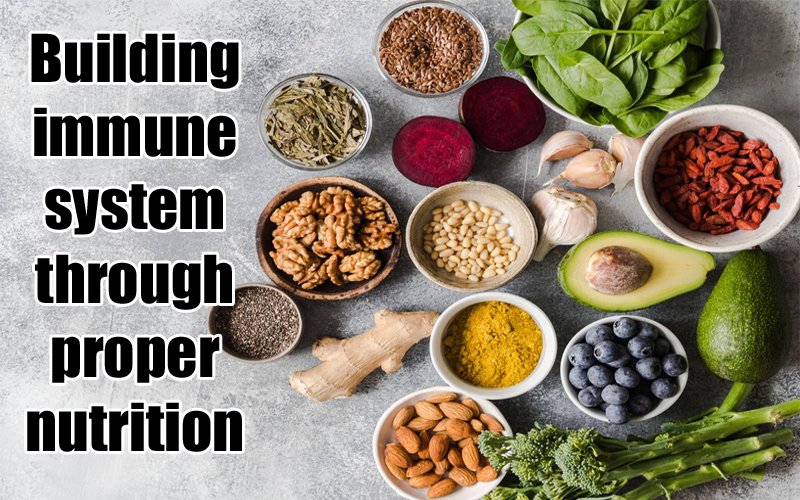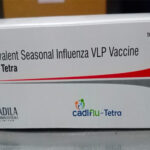Building up your immune system through proper nutrition is equally important to help reduce the risk and impact of virus infections.


Countries across the globe, including India have put in place a number of public health practices such as mask-wearing and social distancing. In addition, there are a number of public health practices to help reduce the spread of infection – regular hand washing, avoiding touching the face with unwashed hands, avoiding close contact with sick people, and disinfecting frequently touched objects.
While all of these play a critical role in minimizing the spread of illness, supporting the immune system with adequate nutrition is equally important to help reduce the risk and impact of virus infections.
How does nutrition support the immune system?
Essential and key nutrients work together to support a healthy immune system. These include vitamins A, B6, B12, C, D, E, and folate, trace elements such as zinc, iron, selenium, magnesium, and copper, as well as the omega-3 fatty acids EPA and DHA. Consuming these key nutrients in optimal amounts is essential to support the complex immune system. Low levels of these nutrients can lead to lower resistance to infection.
Ensuring the intake of a variety of nutrient-rich foods, and consuming a well-balanced diet is the best and simplest way to obtain these nutrients. Also eat colorful vegetables and fruits; low-fat sources of protein, such as eggs, beans, poultry without skin, seafood, lean meats, unsalted nuts, seeds, and soy products. Reduce saturated fats, trans-fats, salt or sodium, and sugar. If you do drink alcohol, do so in moderation.
How does the typical Indian diet measure up?
The typical Indian diet, while traditionally considered nutritious, is undergoing a shift towards high-fat, high-salt and high-sugar. A large number of Indians have a lower intake of fiber, vitamins and other micronutrients than needed. For example, our intake of Zinc, and Vitamins C and D is generally lower than what is required for optimal immune function. Also, while omega-3 fatty acids EPA and DHA are essential, a typical Indian diet may not include it in adequate quantities, since these are found primarily in fish oil. Add to this a sedentary existence, and these nutritional gaps can lead to lower immunity levels, and lifestyle diseases.
How can we ensure proper nutrition, and thus, better immunity?


In addition to public health practices that help reduce the spread of infection, the following dietary routines can help to reduce the risk and severity of virus infections:
- A daily multivitamin and trace element supplementation is recommended to help meet the optimal intake of the micronutrients mentioned above.
- For some micronutrients, such as vitamin C and D, intake above the nutrient requirements may better support optimal immune function.
- Nutrient intake should ideally come from a well-balanced diet, which may not always be possible.
- Nutritional supplements offer a safe option to complement the diet and eliminate potential nutrition gaps.
While public health measures are key to minimizing the spread of illness in communities, nutrition is equally critical since it helps supports optimal immune function.


Mr. Rajesh Sahetiya, Director
Human Nutrition and Health (India/South Asia)
DSM India Pvt Ltd.











